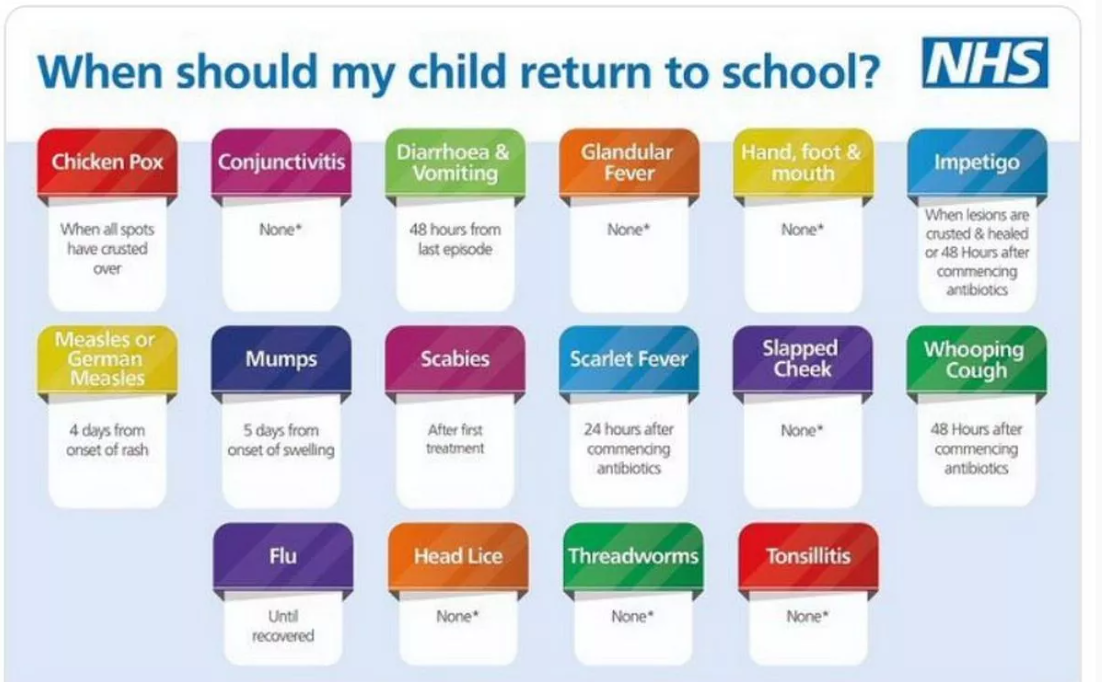Health and Illness Information
Safeguarding and promoting the welfare of children is everyone’s responsibility. Everyone who comes into contact with children and their families and carers has a role to play in safeguarding children.
From time to time children become unwell. Below is some parental guidance around school protocols for some of the common ailments that can impact our children.
Chicken Pox
Children with chicken pox must stay at home until their last spots have crusted over which usually takes about five to six days from the start of the rash. You must inform the school and avoid contact with pregnant women, newborns, and anyone with a weakened immune system, as the virus is highly contagious and can be dangerous to these individuals.
Diarrhoea and vomiting
Diarrhoea and vomiting are very common in children and often resolve quickly, but they are highly contagious. To help prevent the spread of infection within the school community, your child must be kept at home for a minimum of 48 hours after their last episode of vomiting or diarrhoea. This strict exclusion period is essential because children remain infectious even after they feel better. Focus on keeping your child hydrated with small, frequent sips of water or an oral rehydration solution. Please inform the school office of the absence, and do not send your child back to school until the full 48-hour clear period has passed.
Headlice
Head lice are an extremely common issue in primary schools, but they are easily treatable and do not require your child to be kept home from school. Lice are spread by direct head-to-head contact—they cannot fly, jump, or swim, and they do not prefer clean or dirty hair.
The recommended course of action, as per NHS guidance, is to use the wet combing method as soon as you find a live louse. This involves:
- Washing the hair with regular shampoo and applying plenty of conditioner (any brand works).
- Combing the entire head of hair, from root to tip, with a special fine-toothed detection comb. Wipe the comb on a tissue after every stroke to check for and remove any lice or eggs. Repeat the entire wet combing process on days 1, 5, 9, and 13 to catch any newly hatched lice.
If wet combing proves difficult or unsuccessful, your local pharmacist can advise on and supply effective medicated lotions or sprays. Please remember to check everyone in the household and only treat those who have live, moving lice. Regular weekly detection combing is the best way to catch and treat them quickly.
When should my child return to school?


